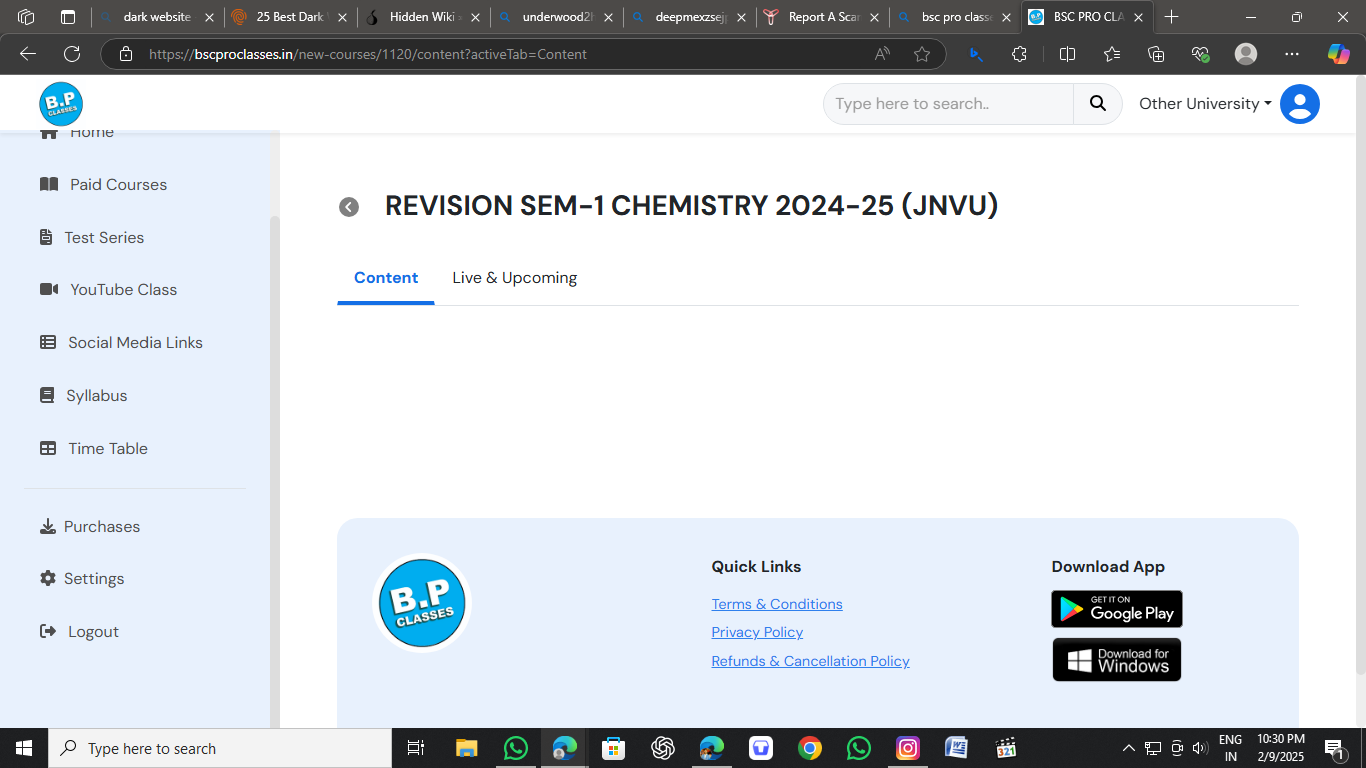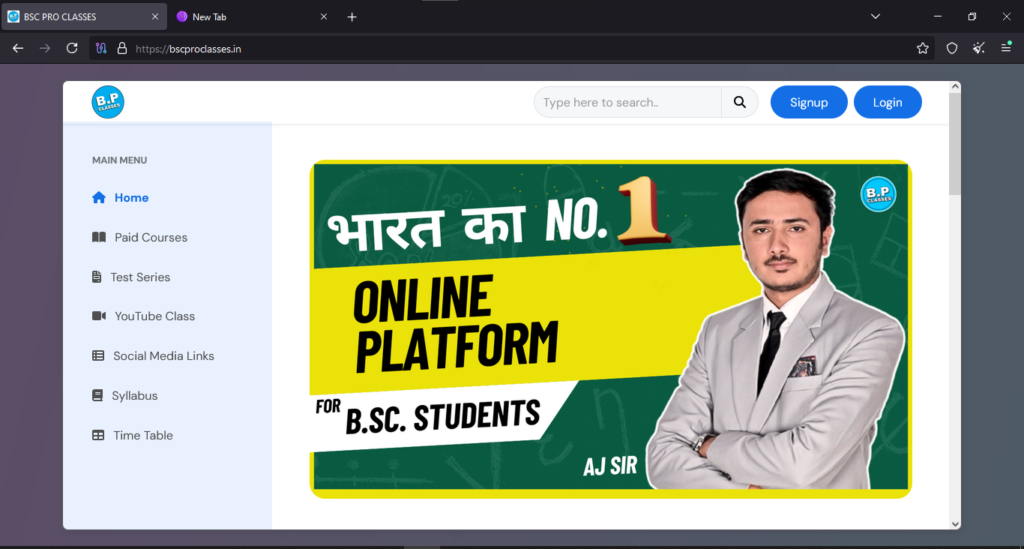Table of Contents
ToggleBSC PRO Classes – TOR Scam Report (170)
Onion Link : https://bscproclasses.in/
Scam Report Date : 2025-02-09
Client Scam Report Breakdown
Original Scam Report :
The report describes BSC PRO CLASSES, an online educational service that offers courses in Mathematics, Physics, and Chemistry for B.Sc. Part-1, Part-2, and Part-3 students. The courses are advertised as being available in both Hindi and English and can be accessed via a mobile application on the Play Store. However, there is no mention of pricing, accreditation, student reviews, or any official educational institution backing the program. The report does not explicitly state any fraudulent activity but raises concerns about the legitimacy of the service due to a lack of verification details. If users have encountered issues such as non-functional courses, fake certifications, or unresponsive customer support, this could indicate a potential scam.
Photos :

Defining Key Terminology and Scam Tactics
Online educational fraud typically involves selling low-quality or non-existent courses under misleading claims. Fake course platforms often charge upfront fees without delivering valuable content, leaving students with no way to seek refunds. If BSC PRO CLASSES lacks proper accreditation, it could be an example of a diploma mill scam, where non-certified institutions deceive students by offering meaningless courses. Another common issue with fraudulent education apps is the bait-and-switch tactic, where a free app promises access to premium content but later demands unexpected payments. Additionally, Play Store listing scams occur when apps falsely claim high ratings or use fake testimonials to appear more credible. If the app does not function properly, lacks customer service, or disappears after payments are made, it could indicate an education scam operation.
Lessons Learned and Scam Prevention Strategies
Before purchasing or enrolling in any online educational service, it is crucial to verify its authenticity and accreditation. Users should check if the institution is officially recognized by academic authorities or universities. Researching independent reviews from real students can also help detect fake testimonials. If the app has hidden fees or forces additional payments after enrollment, it may be a subscription trap scam. A good practice is to test the platform with free trial content before making any financial commitments. Additionally, contacting customer support before purchasing can help assess responsiveness and legitimacy. If the service is found to be fraudulent, users should report it to the Play Store, educational watchdogs, and consumer protection agencies to prevent others from falling victim.






